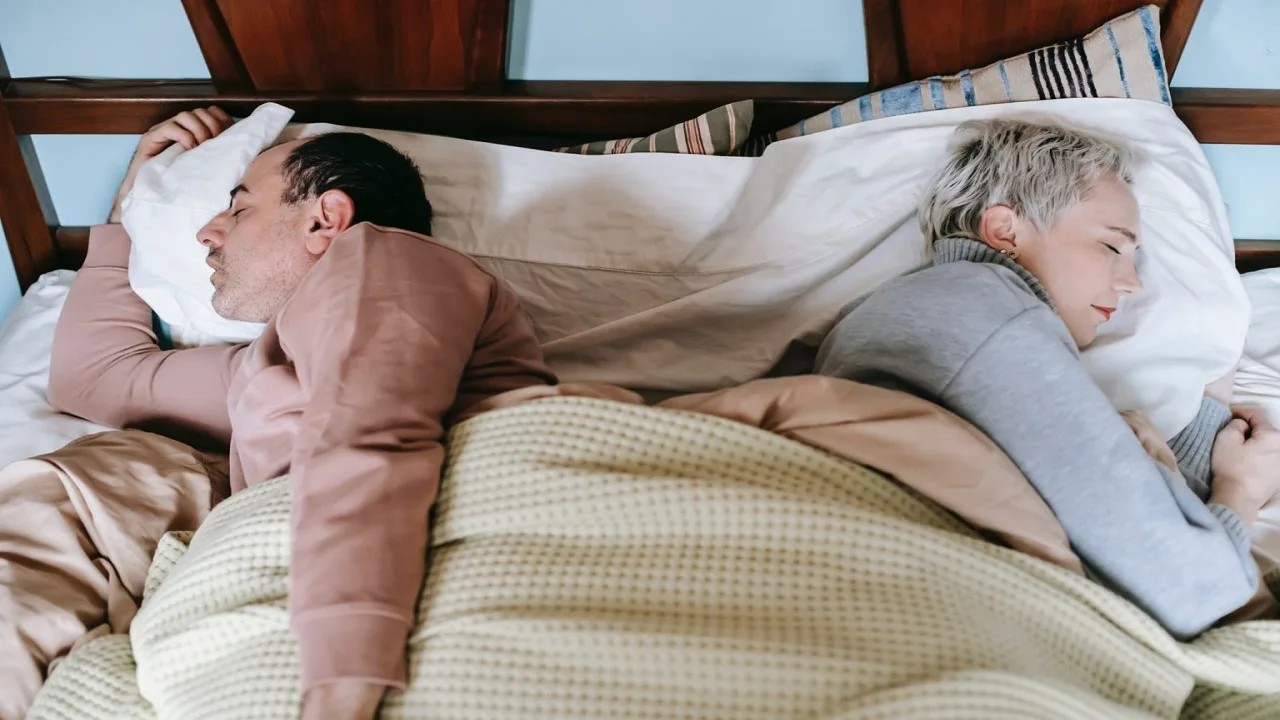Do you know which position you sleep in most at night? If you can’t fall asleep comfortably, wake up frequently at night, and find yourself stiff, stiff, and completely unrefreshed when you wake up in the morning, your sleeping position may have a hand in this. Sleeping positions, where body anatomy comes into play, can affect our holistic health in many ways, from exacerbating our gastrointestinal problems to negatively affecting our cardiovascular health, increasing our snoring complaints to triggering our physical pain. So when can which sleeping position cause health problems, and when can it provide quality sleep? Which side does science say is healthier? On your back, on your stomach, or on your right or left side? We have researched the effects of our sleeping positions on our holistic health for you!
How does sleeping on either side affect our body?
According to a study conducted in Denmark, we spend more than half of our sleep time on our sides, 38 per cent on our backs, and 7 per cent on our stomachs. As we get older, the time we spend on our sides increases. In short, we spend most of our lives sleeping with our weight on either our right or our left. Of course, this has some effects on our bodies.
Anatomically, the right side of our body contains part of the gastrointestinal system, while the left side contains the heart. When we lie on our right side, our weight falls more on our stomach, and when we lie on our left side, our heart. This divides experts on the ideal sleeping position: Some say that people with stomach problems should lie on their left side, while others argue that lying on the left side can worsen cardiovascular health.
What are the benefits of sleeping on our left side?
According to research, sleeping on the right side can cause reflux attacks to become more frequent because, anatomically when you sleep on the right side, the stomach overlaps the last part of the oesophagus. This causes the valve between the stomach and esophagus to not work properly; gastric juices to rise up. For this reason, according to many gastrointestinal system experts, sleeping on the left side is especially important for people with stomach problems to support their digestive health and to prevent sleep from being interrupted by pain or aches. In addition, experts recommend that people with stomach problems put their heads higher than their bodies , for example, sleeping with two pillows.
During pregnancy , sleeping on the left side provides healthier blood circulation for both mother and baby.
What are the benefits of sleeping on our right side?
What if we already have a cardiovascular condition? Experts recommend that we sleep on our right side in this case. According to a study , sleeping on the left side of people who have had serious heart problems can be significantly life-threatening. When sleeping on the left side, there is naturally a localized increase in pressure around the heart. While this pressure does not have any effect on people who are generally healthy, it can create additional strain on the heart of people with heart problems, especially those who have heart failure. It is recommended that these people sleep on their right side in order to both sleep more comfortably and not to hinder the functioning of the heart.
How does sleeping on our back or stomach affect our body?
Lying on your back can worsen snoring and breathing difficulties because gravity causes the tongue and soft tissues in the throat to fall backwards, towards the trachea . Constantly lying on your back can even cause the development of sleep apnea , a serious condition where the body wakes itself up due to not being able to breathe . On the other hand, if we have back, arm, waist or hip pain, lying on our back is considered the most ideal position for relieving pain.
Lying face down can negatively affect the digestive process. Lying face down can trigger reflux and gastritis in people with stomach problems. It can slow down the effective breakdown of food eaten close to bedtime by the stomach and intestines. Lying face down can also cause the spine to overlap throughout the night, which can lead to neck, waist, back and shoulder pain.










